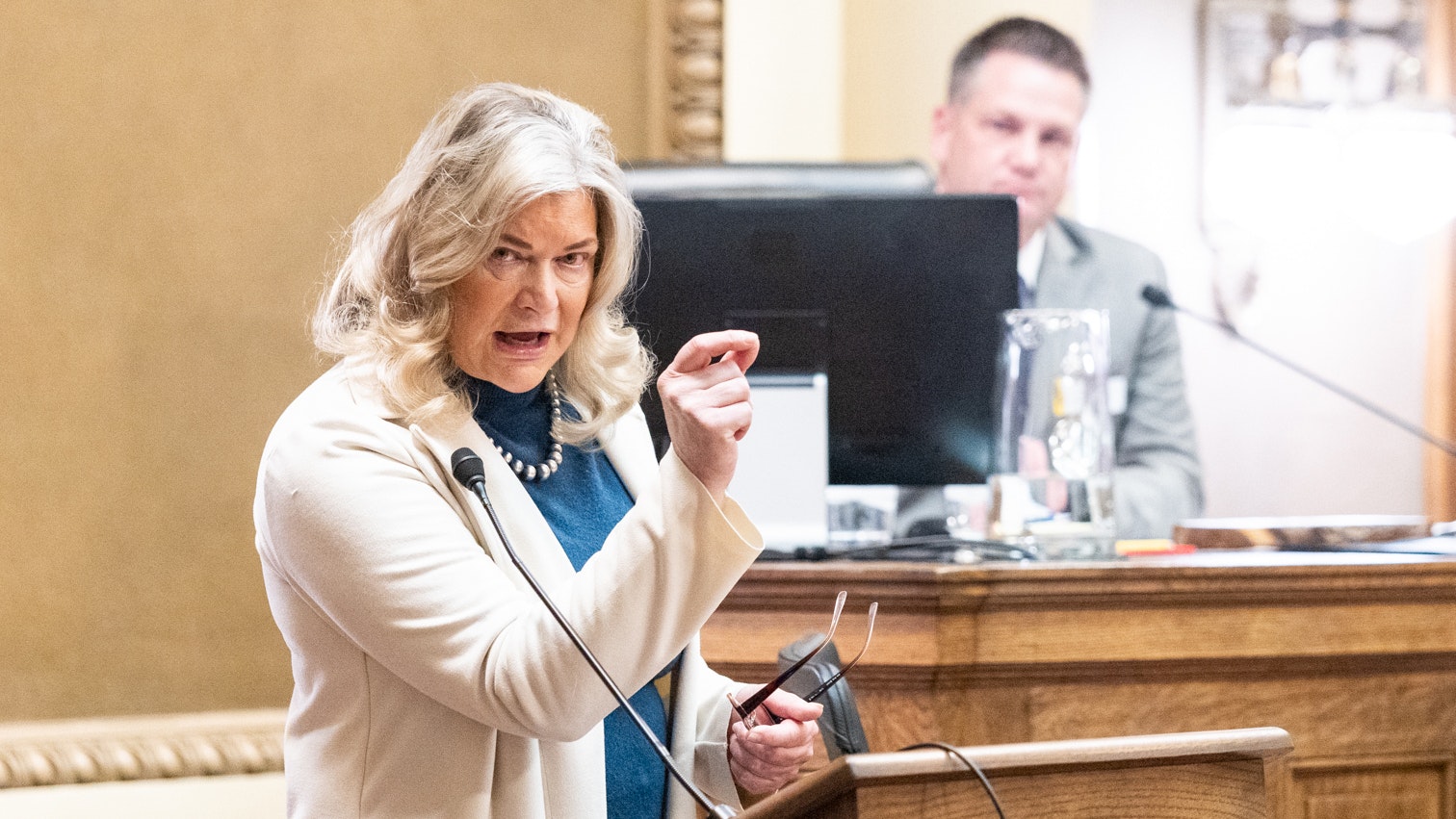CHEYENNE — Granting Wyoming authority to regulate the byproducts of burning coal to make power, including coal ash, is a huge step for the state in getting out from under sometimes tedious and frustrating federal oversight.
That was part of the message EPA Administrator Lee Zeldin delivered at the Wyoming Capitol on Thursday during a signing ceremony for a letter recommending that the state be allowed to manage coal combustion residuals (CCR) itself.
This is a big deal for Wyoming, both Zeldin and Gov. Mark Gordon said, not specifically for the CCR program, but as a step in recognizing that states are the experts on themselves.
“Nobody knows Wyoming like the people of Wyoming,” Zeldin said. “It’s something Wyoming has fought hard for … (and) really represents a model for the rest of the country. You start scratching your head wondering what took so long?”
Gordon said the issue isn’t who controls what part of the process, it’s “about doing things the right way, and we can do them the right way.
“I think it’s very important for Wyoming to control its destiny,” the governor continued. “We’ve demonstrated over the years our ability to do both economic development and have good production of fossil fuels and have good protection of the environment.”
Sen. Cynthia Lummis, R-Wyoming, said the letter signing, which triggers a 60-day comment period on the recommendation, “is such a happy day for me.”
That’s because she said that during previous presidential administrations, it seemed like states had to fight for autonomy and recognition they can do many things better than the federal government.
The EPA under President Joe Biden “had been used in this country to thwart economic activity and to second-guess the experts in this field,” she said. “It changed in a heartbeat; it changed the day Lee Zeldin became the administrator.
“We’ve had lip-service from the Biden administration and the EPA.”
Zeldin echoed the senator and Gordon that Washington, D.C., needs to listen to states.
“At no point will I ever suggest that an agency that is located in WDC is more prepared to ever say that it knows better and that it knows best when compared to the people of Wyoming, who want to be in charge of their own state without intrusion from people from far away — bureaucrats — who feel like they know better,” he said.
Climate Change
Asked about a recent University of Wyoming survey that shows 80% of state residents recognize climate change and are concerned about it, Zeldin didn’t address climate change directly, but said his experience has been Wyomingites are very pro-environment.
“With all my interaction with residents of Wyoming, I never met anyone who wasn’t extraordinarily concerned about and filled with compassion and care for the environment of this state,” he said.
That’s regardless of political parties or ideology, Zeldin added, also pointing out he doesn’t think the debate over climate change has to be absolute in either direction.
“I refuse to engage in any type of rhetoric that won’t acknowledge, that ignores the reality that Americans across all walks of life, across all political parties and ideologies care about our environment,” he said. “I actually don’t know if I’ve met anyone since I’ve been in this position who doesn’t want clean air and water for all Americans.
“We at the Trump EPA choose to protect the environment and grow the economy. We no longer will treat this as a binary choice between the two.”
He said making Wyoming the fifth state to gain control of its own CCR program is a nod to how important the state’s energy industries are to America’s strength, Zeldin said.
“I believe that unleashing energy dominance in our country, unleashing energy dominance here in Wyoming, is best for America’s environment,” he said. “Because we tap into our own energy supply better.
“What we refuse to do in that pursuit of those environmental wins is to play along with the notion that we have to strangulate our economy to do so. We will, in fact, do the opposite. We will do our part to help grow the economy.”
What Does This Mean For Wyoming?
If Wyoming is given authority of its CCR program, it will be managed through the state Department of Environmental Quality.
It also means cutting some federal red tape and speeding up the application process and monitoring of those residuals, like coal ash, which Wyoming’s low-sulfur coal produces a lot of.
CCRs are disposed of in various ways, depending on whether it’s ash, boiler slag from burn furnaces or flue gas residue left behind, according to the EPA.
What the letter of support means is that Wyoming has demonstrated it can manage those at least as well as, if not better than, the federal agency.
Gordon said that’s a welcome outcome from years of the state applying for and proving itself to the EPA.
He said he appreciates “an administration that understands that local conditions are best monitored by local resources, not necessarily from Washington, D.C.”
Greg Johnson can be reached at greg@cowboystatedaily.com.








